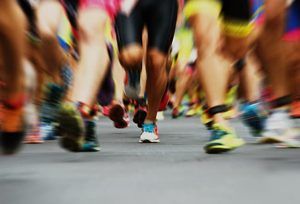
1.Being an Athlete
New research suggests that athletes, especially those who do endurance events like marathons, could get clots more often. They’re more likely to get dehydrated or injured. They may travel far. DVT symptoms are easy to mistake for sports-related issues. Call your doctor if you notice swelling, unexpected bruises, or a stabbing «Charley horse» pain in your arm, leg, or especially your chest.

2.Surgery
Bed rest before or after any kind of surgery slows the flow of blood around your body. Major surgery involving your abdomen, pelvis, hips, or legs raises the risk for DVT since large veins will be injured during your operation. Before surgery, talk to your doctor. You may need to take a blood-thinning medication to help lower your chances of a clot. After your surgery, get up and moving as soon as you’re able.
